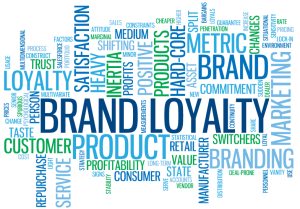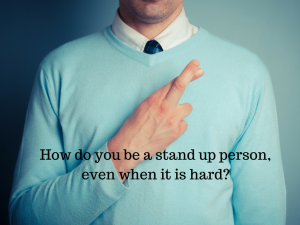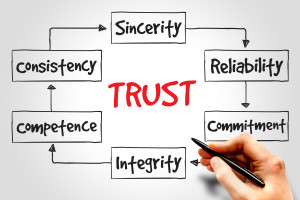This episode is now at jakeacarlson.com/fbf85
Category Archives: Adventitious
FBF65 – Miracle on The Hudson Survivor Dave Sanderson
This episode is now at jakeacarlson.com/fbf65
This episode is now at jakeacarlson.com/fbf65
FBF50 – Celebrating 50 Episodes
This episode is now at jakeacarlson.com/fbf50
This episode is now at jakeacarlson.com/fbf50
FBF48 – Mind Hacking with Sir John Hargrave
This episode is now at jakeacarlson.com/fbf48
This episode is now at jakeacarlson.com/fbf48
FBF47 – Six Pack Abs Challenge
This episode is now at jakeacarlson.com/fbf47
This episode is now at jakeacarlson.com/fbf117
The Six Pack Challenge
Throughout my life I have always desired six pack abs. I went through a period in my twenties where I worked out consistently, every day, for roughly 2 hours and always did cardio and abs. But being young and ignorant I thought abs were a product of exercise solely. I have since been educated and recognize that abs, of the 6 pack variety, are more a product of nutrition…plus some exercise.
So last week I set a goal to focus on my eating and my exercise, to take a four month challenge to get noticeable abs. For those of you who know me well this will be a huge challenge. I love to eat and the foods I love to eat are not exactly healthy. I like pizza, ice cream and candy. But for the next 4 months I am being intentional in my eating and intentional in my work outs.
I plan to chronicle my daily routine and hopefully by the end you will see a transformation. I will look at my wins for the day, my obstacles and challenges I had to overcome and share my exercise routine and food consumption. I am doing this for a couple of reasons. First, I need to be accountable, so keep me honest. Second, maybe you can relate, maybe not, but either way I hope this journey inspires you to set a goal and go after it.
I am 38 years old and have never had a noticeable six pack. I call this my six pack challenge. You can also follow the journey on twitter (@jakeacarlson #my6pack). My daily postings will be at www.familybeforefortune.com/mysixpackchallenge (Click Here to Check it Out)
Start the timer!!
What Am I Afraid Of?
I checked the knot, adjusted my helmet and leaned backward over the 180-foot cliff I was supposed to be rappelling down. The wind whipped through my helmet and made a whistling sound. I leaned back a little bit more and then… froze. I couldn’t do it. I was just too scared. Of what? I can’t even remember. I was 14 years old and this was my very first rappelling adventure.
This past week my 10-year-old daughter asked me what I was afraid of. She added I probably wasn’t afraid of anything. (Such a brave daddy) And it got me thinking, what am I afraid? It’s no longer heights and I love public speaking, I don’t even fear death. So, what am I afraid of?
I have come to the conclusion that there are only 3 things that I truly fear in life. Are they rational fears? Maybe, maybe not.
- Fear of Success– I spend a lot of time working towards what I define as “success”. I have spent a lifetime studying motivation, sales and business skills. And yet the unknown of success causes many people, including myself to hesitate when faced with an opportunity.
As the Marianne Williamson quote, made famous by Nelson Mandela, states “Our deepest fear is not that we are inadequate. Our deepest fear is that we are powerful beyond measure. It is our light, not our darkness that most frightens us. We ask ourselves, Who am I to be brilliant, gorgeous, talented, and fabulous?”
But her answer gives us hope “Actually, who are you not to be? You are a child of God. Your playing small does not serve the world. There is nothing enlightened about shrinking so that other people will not feel insecure around you. We are all meant to shine…”
- Fear of not Succeeding– Similar to the fear above, the fear of not succeeding creates inaction. Sometimes called the fear of failure, embarrassment or humiliation, the desire to avoid looking incompetent or mistaken stops many of us from reaching our full potential. I find it interesting that the dual fears of “success” and “not succeeding” often appear in the same person. The result is that we do not act, we become complacent and we settle. I am not sure which fear is more harmful.
- Fear of Imagined Pain & Suffering– I have been hurt more times than I could probably count. I have broken ankles and wrists, been stitched head to toe, sat through MRIs, CAT Scans and surgery. I’ve been doctored in some of the nicest facilities in the world and received care in the backyard of a local 3rd world resident. And yet I have always recovered.
The pain has subsided and my life has gone on. Mostly the memories have faded into great stories to tell at cocktail parties. Nothing in my past has given reality to my imagined fear of pain and suffering and yet I still hesitate before leaping out of airplanes. Maybe it is more sanity than fear? Often many of us are paralyzed by imagined fears. It may not always be pain or suffering, it could be embarrassment or loss.
So, what can we do? Knowing that I suffer from these fears and likely you do too, I thought I would share a few ways (well….11) that we can overcome fears and keep moving in the direction of success- to reach our potential and realize our dreams.
- Recognize the fear– once you accept that everyone faces uncertainty and “fear” you can begin to strengthen your resolve. Those who have succeeded before you have faced similar challenges, maybe greater challenges than your own.
- Friends– you cannot do it alone- No one reached the top of Everest by himself, it takes a team, a support network, mentors, and education. Surround yourself with people who can lift you up and give you the skills you need to progress.
- Kill the negative– If you are like me, most of your fear comes from that crazy little voice in your head. I am much more critical of myself than others are of me. Stop the negative self-talk and replace it with positive. Whether you think you can or think you can’t you are generally right (thanks Zig Ziglar)
- Visualize the outcome– Many of our fears are the unknown and perceptions of false reality. Take a deep breathe, relax and visualize the outcome. When things go bad they usually aren’t as bad as you thought, when it’s good it’s usually better than you thought. Fill that half glass full.
- Take control– recognize that the outcome is often in your control. You may not be able to control every aspect, but largely the end result can be affected positively in your favor. Take control and persevere.
- Be bold– a very successful podcaster friend counseled that “fortune favors the bold” (thanks John Lee Dumas)
- Celebrate success– even if you fear success, celebrate it. Positively reinforce your success, make it common… make it subconscious.
- Be curious– Always be looking for new ways to approach a situation or problem. What makes you nervous about one solution may make you confident in another. If you fear public speaking but want to verbally share your message, try a podcast (or you can listen to mine)
- Enjoy the ride– Life is short and sweet. We have little blessings that pass through our days to give us joy, lift us up and remind us to breathe. This crazy ride called life can produce more excitement and adrenaline than scuba diving with sharks or peering into a live volcano (trust me).
- What is the worst thing that could happen? Sometimes you win and sometimes you learn… either way you come out ahead. Oh, and remember that bones heal while glory lasts eternally.
- Start small and grow– the first time I spoke in public it wasn’t in front of 300 guests. Baby steps to success.
Since that first rock-climbing adventure at 14 years old, I have been up and down hundreds of rock faces. I have fallen and recovered and learned to absolutely love the sport. I even proposed to my wife during a climbing adventure. The fear that paralyzed me so many years ago is gone, replaced with other fears and obstacles. But, like the fear of heights, as I continue down my road to success I will triumph and succeed and love every minute of it.
Question: What is holding you back from reaching your potential? Leave your comments below or by clicking here.
Get Your Free Copy of 13 Life Quotes (the complete eBook) Here
Brand Loyalty and the Changing Tides
How committed are you to the brands you use? 7 years ago the company I was working for made a switch in the cell phones offered. I went from a Blackberry owner (trackwheel and all) to the proud recipient of the all new iPhone 3. I thought it was amazing. It had a touchscreen and color and the app store was loaded with games. I still have an iPhone today but why? How do we become so loyal to the brands that we use? I am under no disillusionment that the iPhone has the best technology, the fastest processing or the clearer screen but I still cringe at the idea of changing what I have become comfortable with.
While Apple is an easy example, it is not the only example in my life of brand loyalty. I have a particular brand of hockey stick, podcast microphone, breakfast cereal, tennis shoe etc. But I think we commit stronger to comfort they offer than we do to the actual brand, quality or capability. Brand loyalty, and loyalty in general, is not something that just “happens”. It takes time and testing, a period of uncommitted use and finally acceptance. And while brand loyalty takes time to create, it only takes a moment to destroy.
Let me share an example with you. I love ice cream- cookie dough ice cream. And there are very few instances that I would turn down a bowl of the good stuff. Over the past couple of years my family has gotten pretty loyal to a particular frozen yogurt shop in town where you can select your yogurt and then cover it in toppings. We have gotten so loyal to this particular company that my kids are unaware of alternatives. I have always been very complimentary of this particular company and sing their praises every chance that I get. Well…..until this week.
Here’s the story – I have a loyalty card that I use every time we go (which is more often then we should). And this loyalty card is similar to other loyalty cards; the more you buy, the more free yogurt you earn. The pinnacle of achievement for this card is to get the “Unlimited Cup”. Basically you purchase (over time) 520 ounces of yogurt and then you earn the right to fill a cup up to capacity (and beyond) and not pay. I like to set goals and I determined that earning the “unlimited cup” was worthy of my pursuit. I was doing pretty good on my endeavor and had a little under half way to goal when my brand loyalty was tested. This past weekend I went to get some yogurt and found that they had updated their loyalty program and reset my purchased quantity to zero. All that focus and hard work was erased. Does it sound overly dramatic to say I was devastated?
So how do make sure we do not destroy brand loyalty in our businesses? I have 3 suggestions for you to consider
- Know your customer (or client) – who are they, what generation do they come from, their ethnic diversity, gender and demographic. Knowing who you serve (generally) can help you create a culture that builds loyalty. Understanding why your customers work with you or buy from you helps you focus on their needs. When needs are met loyalty increases.
- Put yourself in your customer’s shoes – focusing on the experience of the client will change your focus from profits to service. What experience does the client have as they walk in through the doors of your business or call into your support desk? Do they feel important and valuable or ignored and unappreciated? Seeing your operation from the client perspective should determine how you set up the office flow, who you hire to interact with them and where you reinvest your resources. While the customer may not always be right, a loyal customer is worth the effort.
- Learn from your blunders – no matter how much focus you put on your customers there will always be occasions of complaint. It is impossible to please everyone and while we strive for perfection there are times when we will come up short. Don’t look at those experiences as failures but rather educational opportunities. These are chances to reevaluate and make changes, to learn and grow and improve. A mistake doesn’t become a failure until you miss the lesson.
To win in the loyalty game you must be focused on the client. You must be adaptable and know what drives repeat business; because a loyal customer is worth the effort. As I approached the yogurt counter this weekend with my slightly overfilled bowl, grumbling under my breathe about the increased price and decreased reward points I still made the purchase- because, after all, I’m pretty loyal to my cookie dough ice cream.
Question: What brands are you most loyal to and why? Leave your comments below or by clicking here.
FBF21 – The Essential Eight – Books You Must Read
This episode is now at jakeacarlson.com/fbf21
This episode is now at jakeacarlson.com/fbf21
Do These Jeans Make Me Look Fat & Other Lies We Tell
Have you ever been caught with your hand in the proverbial cookie jar? Maybe it wasn’t an intentional act, you lost track of time and didn’t complete an assignment or circumstances were such that before you recognized what was happening a mistake had been made.
How do you react? What if telling the truth meant you would lose your job?
Hopefully it is rare that you have found yourself in a situation where honesty could cost you your job, but I’d be willing to bet that you have found yourself in situations where telling the truth is difficult. The social pressure and desires to not embarrass ourselves (ego) tempt us to fudge the truth a little.
Of course you are not alone. Little kids begin to lie or use deception as young as 6 months old. Maybe you have experienced the pretended laugh or cry to get attention or a result. In a 2002 study by Dr. Robert Feldman, University of Massachusetts) he found that on average people told 2-3 lies in a 10 minute conversation and 60% of people cannot have a 10 minute conversation without lying once. In a separate study research found that only 18%-25% of lies are ever discovered. That means a lot of people are getting away with a lot of untruths. (source of above statistics).
Most of the deceptions we experience, and participate in, are small and generally minimally consequential in the long term, but those are still some pretty scary statistics. So what can we do to be a stand up person even when it is hard? Here are 10 suggestions for overcoming the temptation to lie.
1- Determine that you will be intentional in your avoidance of deceit. The first and most important step is to decide that you will be honest; a firm resolve and commitment to the truth. Draw that line in the sand. If you make the decision ahead of time you will be prepared to respond when opportunities arise.
2- Think about honesty in your quiet time or meditation. You become what you think about. If you put into your mind that you are a truthful person and view yourself in that frame you will act accordingly. Reinforce your commitment. Do not spend time looking for excuses or fashioning deflections, spend time reinforcing your honesty.
3- Recognize your limitations. Knowing your abilities and what you can accomplish, in terms of time and ability, will help you to always deliver on your promises and will reduce the temptation to skirt the truth later.
4- Admit mistakes. We all make mistakes and sometimes exaggerate or fail to be completely honest. When you recognize that you are not being as honest as your expect yourself to be, apologize and admit mistake. It might take a little notch off your ego but will garner you the reputation of integrity – the trait most employers and business partners rate as the most important quality in an employee. Own up to your shortcomings and avoid blaming others.
5- Know what tempts you to compromise integrity. As an alcoholic avoids bars, so should you avoid situations where you are more prone to compromise your integrity. This relates to #3 above, if you know your limits there is less cause to hide shortcomings.
6- Build relationships. the closer you are to the people you work and interact with, the more comfortable you will get with being truthful. If you have a relationship built on shared trust and integrity you will be confident in sharing the whole truth and nothing but the truth. Have respect for the people you interact with.
7- Ask for help. if you feel that you are really struggling with honesty you may need to enlist the support of a mentor or trusted colleague. Someone you can confide in and work through the process of identifying when you are not being truthful and how you can change.
8- Recognize the consequences of dishonesty. Even though most dishonesty is never discovered there are still consequences. Recognizing the possible, potential and likely results of deception will help you to avoid venturing in that direction.
9- Be persistent. The path to being fully honest may be a journey for you. It may even be a long journey. Take it one step at a time and keep moving forward. If you stumble, recognize your mistake, admit it (see #4) and move on. You are not alone but we need you to be a leader for change.
10- Think before you speak. this goes for dirty jokes, inappropriate language and gossip too. If our natural tendency is to exaggerate, blame, deflect or skirt the truth then stop….think….and retry with the truth.
Honesty, as we all know, is the best policy….though not always the easiest. I continuously work on genuine integrity in all my interactions and follow the above 10 suggestions in my own life. I know my weaknesses and try to have the confidence to accept responsibility. Integrity is the trait that makes the difference in success, confidence, friendships and reaching our potential. How honest are you? By the way…..you look great in those jeans.






